
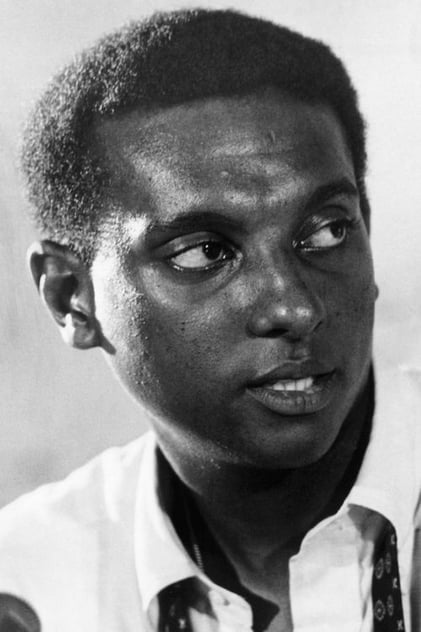
Stokely Carmichael
Born: June 29, 1941
Died: November 15, 1998
in Port of Spain, Trinidad, Trinidad and Tobago
Died: November 15, 1998
in Port of Spain, Trinidad, Trinidad and Tobago
Kwame Ture was a prominent organizer in the civil rights movement in the United States and the global Pan-African movement. Born in Trinidad, he grew up in the United States from the age of 11 and became an activist while attending the Bronx High School of Science.
Movies for Stokely Carmichael...
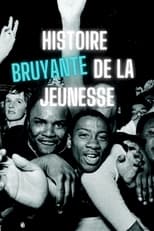
Title: 70 Years of Youth Revolt
Character: Self (archive footage)
Released: November 21, 2020
Type: TV
A look back at the social movements, revolts and youth subcultures from the post-war period to the present day: after the World War II, the left-bank of Paris became a mecca for jazz and alternative living, youth culture was born with trailblazing American movies, and rock became the soundtrack to a generation that wanted to change everything.

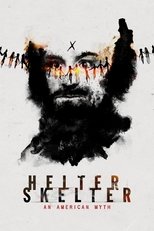
Title: Helter Skelter: An American Myth
Character: Self (archive footage)
Released: July 26, 2020
Type: TV
The untold story behind cult leader Charles Manson and his followers' heinous crimes as told through interviews with former members, archival footage, and newly-unearthed images.

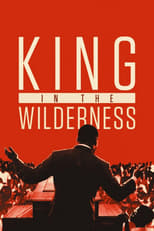
Title: King in the Wilderness
Character: Self (archive footage)
Released: January 22, 2018
Type: Movie
A chronicle of the final chapters of Dr. Martin Luther King Jr.’s life, revealing a conflicted leader who faced an onslaught of criticism from both sides of the political spectrum.

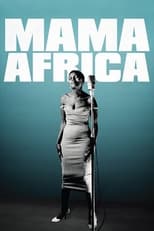
Title: Mama Africa
Character: Self (archive footage)
Released: August 12, 2011
Type: Movie
Miriam Makeba was one of the first African musicians who won international stardom and whose music was always anchored in her traditional South African roots. Miriam Makeba was forced into exile in 1959. She sang for John F. Kennedy, performed with Harry Belafonte and Nina Simone, was married to Hugh Masekela and also Stokely Carmichael. Her life was tumultuous. She always stood for truth and justice. She fought for the oppressed most importantly for black Africans, as a campaigner against apartheid. She died November 2008 after a concert in Italy. Mika Kaurismäki's documentary, traces fifty years of her music and her performing life. Through rare archive footage of her performances and through interviews with her contemporaries we discover the remarkable journey of Miriam Makeba.

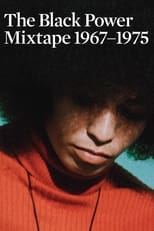
Title: The Black Power Mixtape 1967-1975
Character: Self (archive footage)
Released: April 1, 2011
Type: Movie
Examines the evolution of the Black Power Movement in US society from 1967 to 1975. It features footage of the movement shot by Swedish journalists in the United States during that period and includes the appearances of Angela Davis, Bobby Seale, Huey P. Newton, Eldridge Cleaver, and other activists, artists, and leaders central to the movement.

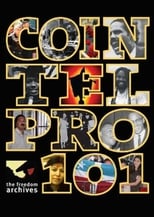
Title: COINTELPRO 101
Character: Self (archive footage)
Released: May 7, 2010
Type: Movie
COINTELPRO 101 exposes illegal surveillance, disruption, and outright murder committed by the US government in the 1950s, 60s, and 70s. “COINTELPRO” refers to the official FBI COunter INTELigence PROgram carried out to surveil, imprison, and eliminate leaders of social justice movements and to disrupt, divide, and destroy the movements as well. Many of the government's crimes are still unknown. Through interviews with activists who experienced these abuses first-hand, with rare historical footage, the film provides an educational introduction to a period of intense repression and draws relevant lessons for the present and future.

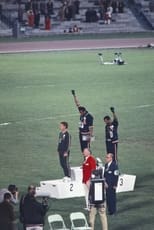
Title: Black Power Salute
Character: Self (archive footage)
Released: July 9, 2008
Type: Movie
A film about one of the most iconic images of the 20th century, the moment when the radical spirit of the 1960s upstaged the greatest sporting event in the world. Two men made a courageous gesture that reverberated around the world, and changed their lives forever. This film is about Tommie Smith and John Carlos' protest at the 1968 Olympics.

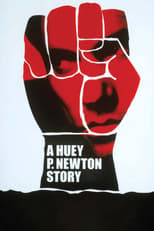
Title: A Huey P. Newton Story
Character: Self (archive footage) (uncredited)
Released: June 18, 2001
Type: Movie
The story of how the radical Huey P. Newton developed the Black Panther Party based on his 10-point program for social reform.

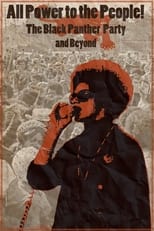
Title: All Power to the People!
Character: Self (archive footage)
Released: June 1, 1996
Type: Movie
Using government documents, archive footage and direct interviews with activists and former FBI/CIA officers, All Power to the People documents the history of race relations and the Civil Rights Movement in the United States during the 1960s and 70s. Covering the history of slavery, civil-rights activists, political assassinations and exploring the methods used to divide and destroy key figures of movements by government forces, the film then contrasts into Reagan-Era events, privacy threats from new technologies and the failure of the “War on Drugs”, forming a comprehensive view of the goals, aspirations and ultimate demise of the Civil Rights Movement…

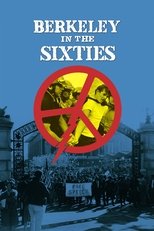
Title: Berkeley in the Sixties
Character: Self (archive footage)
Released: April 23, 1990
Type: Movie
A documentary about militant student political activity at the University of California, Berkeley in the 1960s.

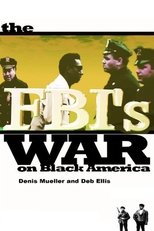
Title: COINTELPRO: The FBI's War on Black America
Character: Self
Released: January 1, 1990
Type: Movie
Through a secret program called the Counter Intelligence Program (COINTELPRO), there was a concerted effort to subvert the will of the people to avoid the rise "of a Black Messiah" that would mobilize the African-American community into a meaningful political force. This documentary establishes historical perspective on the measures initiated by J. Edgar Hoover and the FBI which aimed to discredit black political figures and forces of the late 1960's and early 1970's. Combining declassified documents, interviews, rare footage and exhaustive research, it investigates the government's role in the assassinations of Malcolm X, Fred Hampton, and Martin Luther King Jr. Were the murders the result of this concerted effort to avoid "a Black Messiah"?

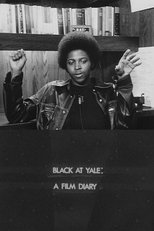
Title: Black at Yale: A Film Diary
Character: Himself
Released: January 27, 1974
Type: Movie
The film focuses on the experiences of African-American students at Yale in the early 1970s. The influential documentary short follows students Erroll McDonald and Eugene Rivers, and features a conversation with civil rights activist Stokely Carmichael.

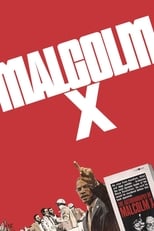
Title: Malcolm X
Character: Self (archive footage)
Released: May 24, 1972
Type: Movie
James Earl Jones narrates this fascinating and moving documentary about the life of the assassinated black leader through various sources.

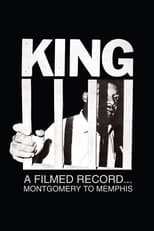
Title: King: A Filmed Record... Montgomery to Memphis
Character: Self (archive footage)
Released: March 24, 1970
Type: Movie
Constructed from a wealth of archival footage, the documentary follows Dr. Martin Luther King, Jr. from 1955 to 1968, in his rise from regional activist to world-renowned leader of the Civil Rights movement. Rare footage of King's speeches, protests, and arrests are interspersed with scenes of other high-profile supporters and opponents of the cause, punctuated by heartfelt testimonials by some of Hollywood's biggest stars.

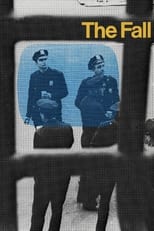
Title: The Fall
Released: January 15, 1969
Type: Movie
"The Fall" depicts certain scenes in New York City between October 1967 and March 1968, shot by the independent filmmaker, Peter Whitehead. It is a very personal documentary, and Whitehead appears in a large number of scenes, and we hear his lengthy ruminations on the state of the United States and the war in Vietnam.

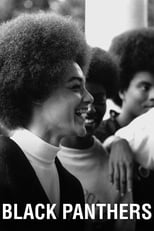
Title: Black Panthers
Character: Self
Released: December 1, 1968
Type: Movie
A film shot during the summer of 1968 in Oakland, California around the meetings organised by the Black Panthers Party to free Huey Newton, one of their leaders, and to turn his trial into a political debate. They tried and succeeded in catching America’s attention.

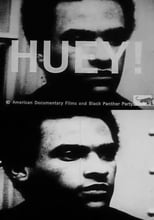
Title: Huey!
Released: March 1, 1968
Type: Movie
Documentary film produced by American Documentary Films and the Black Panther Party from 1968, honoring Huey P. Newton's struggle for African American civil rights, advocating for his release from jail and addressing issues of racism in American society. Features scenes from the funeral of Bobby Hutton and the Huey P. Newton Birthday Rally in the Oakland Auditorium on February 17th 1968, with speeches by: Bobby Seale (who explains the Black Panther Party's 10 Point Program in detail); Ron Dellums; James Foreman; Charles R. Garry; Eldridge Cleaver; Bob Avakian; H. Rap Brown and Stokely Carmichael. Also includes views of police officers showing the weapons and armor they carry in patrol cars and of African Americans discussing racism in American society. This film was scripted and directed by Sally Pugh.

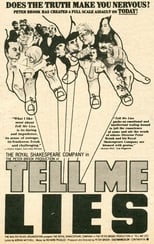
Title: Tell Me Lies
Character: Party Guest
Released: February 2, 1968
Type: Movie
Adapted and directed by Peter Brook from the Royal Shakespeare Company’s ‘production-in-progress US’, this long-unseen agitprop drama-doc – shot in London in 1967 and released only briefly in the UK and New York at the height of the Vietnam War – remains both thought-provoking and disturbing. A theatrical and cinematic social comment on US intervention in Vietnam, Brook’s film also reveals a 1960s London where art, theatre and political protest actively collude and where a young Glenda Jackson and RSC icons such as Peggy Ashcroft and Paul Scofield feature prominently on the front line. Multi-layered scenarios staged by Brook combine with newsreel footage, demonstrations, satirical songs and skits to illustrate the intensity of anti-war opinion within London’s artistic and intellectual community.


Title: From Protest to Resistance
Character: Self
Released: January 1, 1968
Type: Movie
Documentary film about three veterans of the Civil Rights movement who have become peace spokesman for the new opposition activist. It traces their thought and action over the past year, as they see themselves moving from demonstration to political organizing.

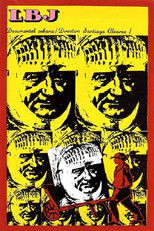
Title: LBJ
Character: Himself
Released: January 1, 1968
Type: Movie
This is a montage of different images from the JFK, Martin Luther King and Bobby Kennedy triumphs and assassinations, all three events being observed by Lyndon Johnson as the dark figure who is plotting the anti-black rights movement.

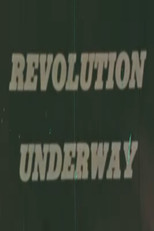
Title: Revolution Underway
Released: January 1, 1968
Type: Movie
This color propaganda film made National Education Program (NEP) as a warning to citizens of the USA about the subversive groups within the country looking to destroy the American system and its people. It dates to 1968, one of the most chaotic years in 20th Century American history.

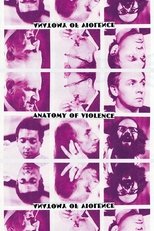
Title: Anatomy of Violence
Character: Self
Released: November 12, 1967
Type: Movie
Documentary of the Symposium on the Dialectics of Liberation and the Demystification of Violence, held in London, July 1967, organized by R.D.Laing, with Stokely Carmichael, Allen Ginsberg, Paul Goodman, Herbert Marcuse, John Gerassi, and many others. An important record of the spectrum of left-wing politics and personalities during the turbulent Sixties.

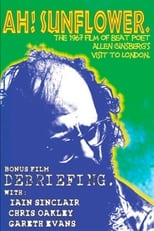
Title: Ah, Sunflower
Character: Self
Released: August 13, 1967
Type: Movie
Allen Ginsberg in Britain.

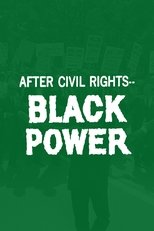
Title: After Civil Rights... Black Power
Character: Himself
Released: June 11, 1967
Type: Movie
Report on the nature of "Black Power," and how it can be effectively used. Interviews with Martin Luther King, SNCC head Stokely Carmichael, Floyd McKissick of CORE, and Charles Evers. Reporter is Sander Vanocur.

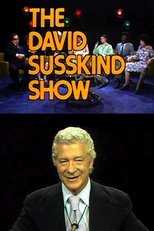
Title: The David Susskind Show
Character: Self
Released: January 18, 1959
Type: TV
The David Susskind Show is an American television talk show hosted by David Susskind. The program began its existence in 1958 as Open End, and was broadcast by WNTA-TV in New York City. The title referred to the fact that the program continued until Susskind or his guests were too tired to continue late on a Sunday night.
